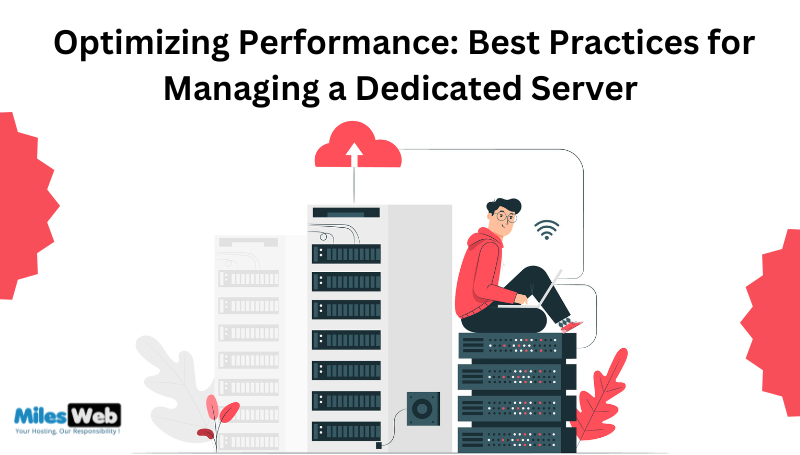Dedicated servers are the best web hosting option for high-traffic websites which requires ample resources. The website performance is also higher with no lag or performance issues. Maximum bandwidth, isolated server resources, and top-grade processors contribute to the maximum website performance. To secure the best fit for your needs, consider buy dedicated server online for a powerful hosting solution.
If your business is also using cheap storage dedicated server, then your business will grow exponentially. With the growing business, the resources and optimizing dedicated servers are also crucial. These tips can help ensure your web infrastructure is robust and agile enough to handle the ever-increasing online traffic demands.
What is a Dedicated Server?
A dedicated hosting server is a form of web hosting server where clients rent an entire server. Unlike shared hosting, there will be no server resources shared with anyone else. It means the client gets exclusive control over their servers.
The client has the operating system choice, hardware, and software. Dedicated hosting servers offer excellent performance, ensuring higher stability and reliability. These servers can be configured and managed according to the business specifications. Hence, clients can incorporate firewalls, security protocols, and more.
What is Server Optimization?
Before discussing the art of dedicated server optimization, it is crucial to understand, what it is. Server optimization involves different strategies like configuring hardware, software, and network resources. It requires the
It’s crucial to define server optimisation before delving into the craft of dedicated server optimisation. Server optimisation is the process of improving server performance by using specific tactics. These involve setting up network, hardware, and software resources so they operate well under anticipated load scenarios. This process maximises the server’s speed, reliability, and efficiency. Server optimization offers many benefits, including a boosted user experience and reduced operational costs.
Optimization Tips For a Dedicated Server
Choosing the Right Hardware Specs
Hardware specification matters for businesses as it determines the applications’ compatibility with the server. The main server’s storage type, RAM, and capacity host websites and applications. If your dedicated server is not having enough memory and load efficiency, your resource-intensive websites and applications will experience a performance lag.
Also, choose SSD NVMe storage-based dedicated servers that boost data access time. If you are clear about your expected resource requirements, the server will not fail under strain. MilesWeb is the best-managed dedicated hosting service provider offering reliable IT resources with managed support for a higher ROI.
Regularly Update the Software on the Server
Regular software updates of the dedicated server fix common technical vulnerabilities for performance betterment.
Keeping these updates automated may help maintain your server’s performance without requiring user interaction. With this method, the most recent software versions are always installed on the system.
Use a Content Delivery Network
The Content Delivery Network (CDN) provides online content based on the location of consumers through a worldwide computer network. CDNs reduce server stress. These servers cache material to achieve this. Especially for geographically diverse audiences, this results in faster content delivery. There are many other benefits to implementing a CDN, including:
- Increase the website Load times
- Lower bandwidth costs.
- Minimized the server stress.
- Overall performance Improves.
As we move forward, let’s discuss the role of optimizing server performance.
Install Caching to Reduce Server Load
Caching is a technique where the data can be stored frequently, in a temporary storage space. Reliable dedicated servers incorporate LiteSpeed nameservers and LSCache caching technologies for higher efficiency. All these advancements reduce the server load and speed up the response time for a better user experience. MilesWeb deploys dedicated servers preconfigured with LSCache caching technologies for mission-critical websites.
Summing Up
By following these best practices, you can get the most out of your dedicated server and ensure optimal application and website performance. Remember, a well-managed server translates to a smooth user experience, increased uptime, and overall better efficiency.
Don’t be afraid to delve deeper into server optimization techniques – the more you understand your server’s inner workings, the better equipped you’ll be to fine-tune it for your specific needs. If you’re unsure about any aspects of server management, consider consulting a hosting provider with experienced technical support staff. With a little effort, you can turn your dedicated server into a reliable and high-performing workhorse for your business.

